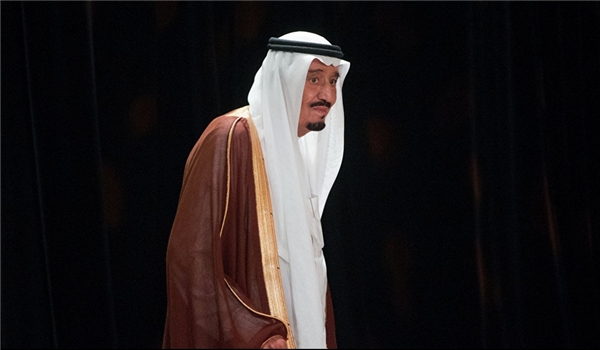
RNA - James Dorsey, senior fellow at the S. Rajaratnam School of International Studies, said that by orchestrating the move by Egypt, the United Arab Emirates and Bahrain to also severe their ties with Qatar, the Saudis stepped up their 40-year-old rivalry with Iran.
The analyst added that the Saudis' attempt to isolate Qatar has three goals: to compel [Persian] Gulf states to take a side; to compel Muslim nations to take a side as well; and, to pressure the United States to go down hard on Qatar.
Bahrain, Saudi Arabia, the United Arab Emirates and Egypt cut off diplomatic ties with Qatar on Monday, and suspended air and sea communication one week after the Arab Islamic American Summit in Riyadh. Later, Libya and the Maldives joined that list of nation that break off diplomatic relations with Doha.
He said the situation in the [Persian] Gulf is complicated by the fact that Qatar hosts the largest US military base in the Middle East.
Meanwhile, US Department of Defense Spokesperson Adrian Rankine-Galloway announced that the United States is not planning to change the posture in Qatar amid Doha's row with Arab states over the alleged support for terrorist groups.
Rankine-Galloway said that Washington encourages its [Persian] Gulf partners to reduce tensions amid the recent deterioration of relations between Qatar and several other Arab states.
"We encourage all our partners in the region to reduce tensions and work towards common solutions that enable regional security," Rankine-Galloway stated, adding that "we have no plans to change our posture in Qatar."
Dorsey added that it is still too early to tell if Saudi Arabia's actions will have a significant impact on migrant workers in the region.
He stressed that oil prices will be affected as the diplomatic row creates uncertainty in the [Persian] Gulf region, as world oil prices jumped following Saudi Arabia's announcement that it cut ties with Qatar.
Supreme Leader of the Islamic Revolution Ayatollah Seyed Ali Khamenei lashed out on Sunday against US President Donald Trump and Saudi Arabia's leaders for their new regional alliance against Tehran, saying it would bear no fruit.
Ayatollah Khamenei made the remarks when addressing a ceremony held to mark the 28th anniversary of the passing of founder of the Islamic Republic, Imam Khomeini.
"The US president stands alongside the leaders of a tribal and backward system and does the sword dance, but criticizes an Iranian election with 40 million votes," the supreme leader said.
"Even with a multi-billion dollar bribe to America, the Saudis cannot achieve their goals in the region," he added.
US President singled out Iran as a key source of funding and support for militant groups during his visit to Saudi Arabia in late May, while Washington sealed a $110 billion arms deal with Saudi Arabia.
According to US Secretary of State Rex Tillerson, the $110 billion arms deal signed by Saudi King Salman and Trump was a component of $350 billion in economic and military investments between the two countries over the next 10 years.
Saudi Arabia has been striking Yemen since March 2015 to restore power to fugitive president Mansour Hadi, a close ally of Riyadh. The Saudi-led aggression has so far killed at least 14,100 Yemenis, including hundreds of women and children.
Despite Riyadh's claims that it is bombing the positions of the Ansarullah fighters, Saudi bombers are flattening residential areas and civilian infrastructures.
According to several reports, the Saudi-led air campaign against Yemen has driven the impoverished country towards humanitarian disaster.
Besides Riyadh intervention in Yemen, the US and Saudi Arabia, along with a number of their regional allies, stand accused of providing weapons and funding various militant groups wreaking havoc in countries like Syria and Iraq.
The Riyadh regime has also sent troops into Bahrain to help repress weeks of protests by the Shia Muslim majority, as thousands of anti-Manama protesters have held demonstrations in Bahrain on an almost daily basis ever since a popular uprising began in the country in February 2011.
Saudi Arabia has also stepped up security measures in the Shia-dominated Eastern Province since 2011, which has been rocked by anti-regime demonstrations, while the protesters demand only free speech, the release of political prisoners and an end to economic and religious discrimination.
The conflict between Qatar and its neighbors occurred one week after the Arab-American Summit in Riyadh, when the Qatari news agency posted a speech on behalf of the country's emir in support of building relations with Iran.
At the summit, Saudi Arabia on behalf of all the guests condemned Iran and threatened the country.
847/940